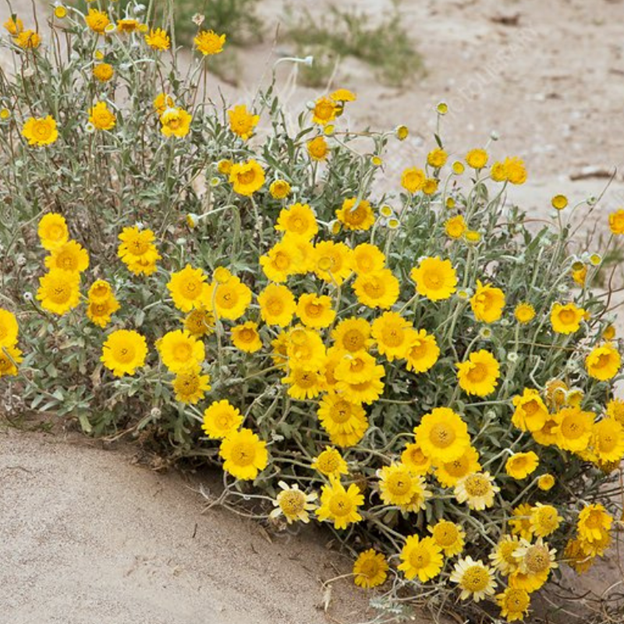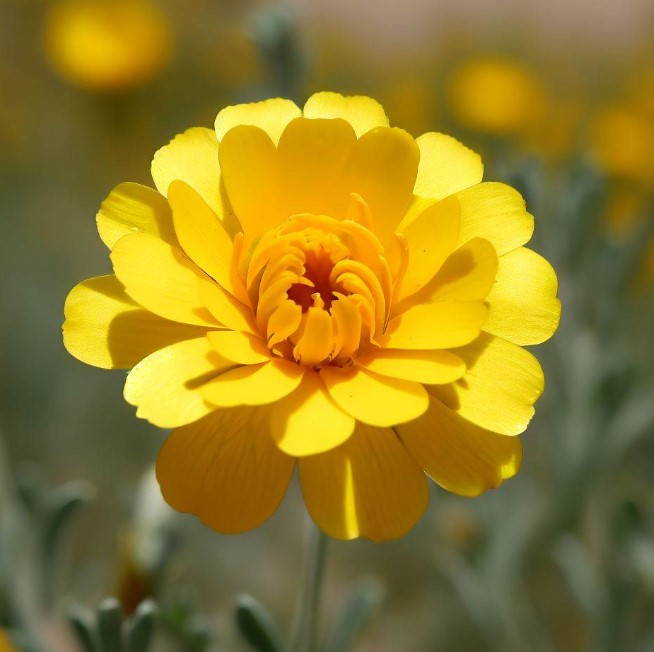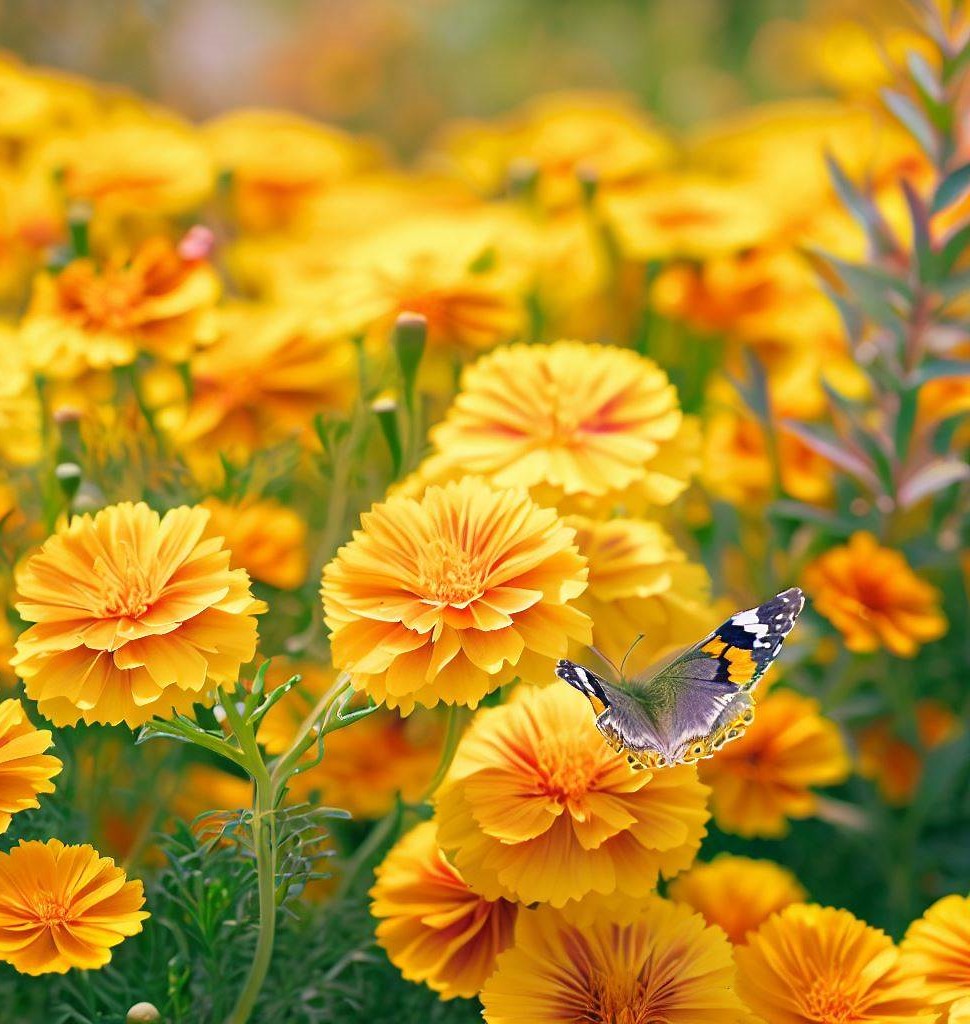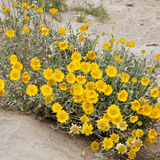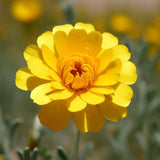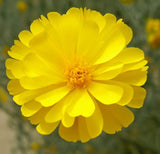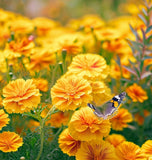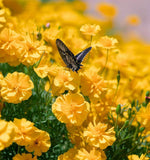BAILEYA multiradiata (Desert Marigold)
BAILEYA multiradiata (Desert Marigold) is a perennial wildflower plant native to the southwestern United States and northern Mexico. It typically grows up to 1 to 2 feet (0.3 to 0.6 meters) tall and 1 to 2 feet (0.3 to 0.6 meters) wide. The plant has a bushy, rounded habit, with numerous upright stems that are covered in small, gray-green, fern-like leaves.
The long-lived, bright-yellow flowers rise on nearly leafless stems above the banks of woolly, gray foliage. This grayish, woolly plant has branched leaf mostly in the lower half of the plant. There are vivid yellow flowers at heads of bunches. The flowers, which occur periodically in a long bloom period, turn dry and thin with age.
The leaves of Desert Marigold are divided into many small segments and are typically 1 to 3 inches (2.5 to 7.6 cm) long. They are covered in small hairs, giving them a fuzzy appearance.
The flowers of Desert Marigold are produced in clusters at the end of the stems, with each cluster containing numerous small, yellow, daisy-like flowers. The flowers are typically 1 to 2 inches (2.5 to 5 cm) in diameter and have a prominent central disk surrounded by numerous ray petals. They bloom in late winter to early spring, and may continue to bloom intermittently throughout the summer and fall.
Beds of these flowers give the look of solid strips of yellow, along miles of desert roadsides. In gardens and prairies, a single plant raises into a perfect hemisphere of yellow spreading sheet, blooming throughout the hot summer and into fall. After the flowers have bloomed, Desert Marigold produces small, dry fruits called achenes, which contain several small seeds. The plant is adaptable to a range of soil types and prefers full sun to partial shade.
Desert Marigold is commonly used in native plant landscaping and restoration projects, as it is a hardy and attractive plant that provides important habitat and food for wildlife. It is often found in desert and semi-arid regions, and is tolerant of drought and extreme heat.
| Number of Seeds | Max Coverage Area (Square Ft.) | |
|---|---|---|
| 0.5OZ | 23,438 | 500 |
| 1OZ | 46,875 | 1,000 |
| 1/4LB | 187,500 | 4,000 |
| 1/2LB | 375,000 | 8,000 |
| 1LB | 750,000 | 16,000 |
| 5LB | 3,750,000 | 80,000 |
Scientific Name: Baileya Multiradiata
Common Name: Desert Marigold,
Plant Type: Short-Lived Perennial
Family: Asteraceae (Sun Flower Family)
Native Range: Northern Mexico, South Western United States
Full Growth Height: 8-16 inches
Width in Across: 1 ft
Exposure: Full Sun, Partial Shade
Blooming Season: Spring to Summer
Flower: Showy with Round Petals
Attracts: Nectar-Bees, Nectar-Butterflies, Nectar-insects
Flower Color: Bright Yellow
Tolerate: Drought, Deer
Water Requirement: Low
Soil Type: Sand, Rock
Native Habitat: Flat Desert Areas
Uses: Summer Bedding, Bee Gardens

